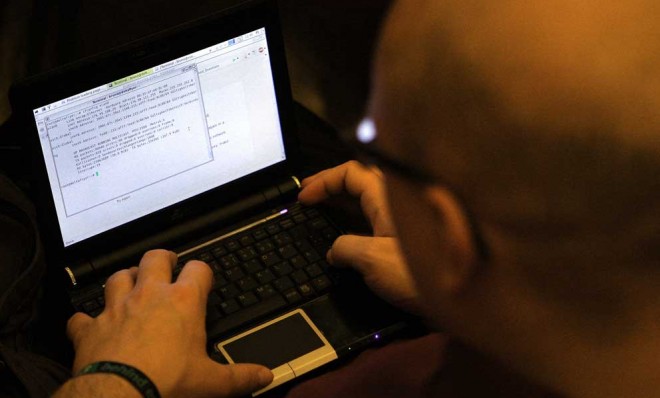The tech industry's case for immigration reform
Mary Meeker and Liang Wu argue that the American tech industry has too many jobs and too few skilled workers

A free daily email with the biggest news stories of the day – and the best features from TheWeek.com
You are now subscribed
Your newsletter sign-up was successful
This week, while the tech world was obsessively dissecting venture capitalist Mary Meeker's annual internet trends report (wearable tech! Weibo Sina! smartphones!), Meeker and Liang Wu of Kleiner Perkins Caufield & Byers delivered a second 97-slide deck zeroing in on U.S. immigration and the tech industry. To stay at the top of the industry, the report argues, the U.S. will have to reform immigration laws and encourage companies to recruit from overseas.
Immigrants have always been a driving force behind economic growth in the U.S. The report explains that 42 percent of America's Fortune 500 companies are founded by first- or second-generation immigrants, as were 60 percent of the top 25 tech companies. Steve Jobs was a second generation immigrant from Syria, Sergey Brin is first generation from Russia, Larry Ellison is second generation from Russia — the list goes on.
But as the tech industry booms in the U.S., thanks in large part to entrepreneurial immigrants, companies are having to scramble to find high-skilled workers to fill jobs. While upwards of 50,000 college graduates earn Bachelors degrees in computer science from U.S. universities each year, tech companies have more than twice as many openings at that level. And some of the eligible graduates are foreign students who don't get to stay in the states after graduating. From the report:
The Week
Escape your echo chamber. Get the facts behind the news, plus analysis from multiple perspectives.

Sign up for The Week's Free Newsletters
From our morning news briefing to a weekly Good News Newsletter, get the best of The Week delivered directly to your inbox.
From our morning news briefing to a weekly Good News Newsletter, get the best of The Week delivered directly to your inbox.
Many high-skilled foreigners graduate from our top universities. But immigration policy makes it difficult for them to stay in America. In short, we are training many of the most talented students in the world and leaving many of them with these options — go to work in another country for a non-U.S. company OR work for a U.S. company in another country.
At the same time, tech companies are prevented from bringing into the U.S. enough of the high-skilled workers they need to remain competitive.
As a result, U.S. companies are moving some jobs overseas — and other countries are focused on luring away talented workers who can't get H-1B visas.
Naturally, tech industry leaders are well aware of the shortage of high-skilled workers. This year, 100 tech executives, including Mark Zuckerberg, have been lobbying in support of the Immigration Innovation Act, which would increase the number of H-1B temporary work visas (just 85,000 H-1B visas are awarded annually in total), and the Startup Visa Act, which would allow a foreign entrepreneur to receive a two-year visa with support from a U.S. investor.
Meeker and Wu's full 97-page presentation:
A free daily email with the biggest news stories of the day – and the best features from TheWeek.com
Carmel Lobello is the business editor at TheWeek.com. Previously, she was an editor at DeathandTaxesMag.com.